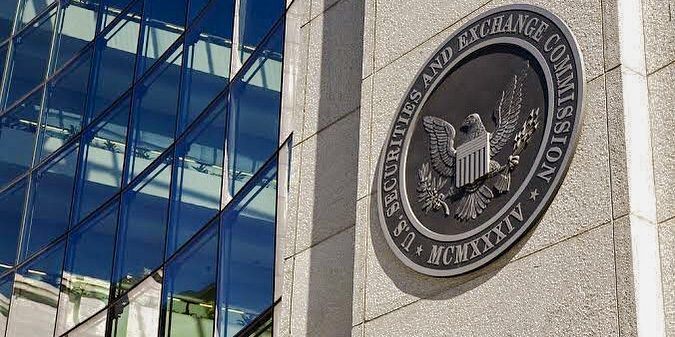View by Topic
Recent Articles
-
Energy Star: A Quiet Exit and a Bright Future Beyond GovernmentSaturday, June 7th, 2025
-
Congress Blocks California’s Gasoline Car BanSaturday, May 31st, 2025
-
EPA Will Keep Current Limits for “Forever Chemicals” in Drinking WaterSaturday, May 24th, 2025
-
Court Indefinitely Pauses SEC Climate Rule LitigationSaturday, May 17th, 2025
-
Maryland is About to Regulate Mold But is the Cart Before the HorseSaturday, May 10th, 2025
View by Month/Year
“Green Building Law Update” Headlines
Recent Articles & News from
Stuart Kaplow’s blog
at GreenBuildingLawUpdate.com
- Congress Blocks California’s Gasoline Car Ban: A Legal and Policy Analysis June 1, 2025
- EPA Will Keep Current Limits for “Forever Chemicals” in Drinking Water May 25, 2025
- Court Indefinitely Pauses SEC Climate Rule Litigation May 18, 2025
- Maryland is About to Regulate Mold: But is the Cart Before the Horse? May 11, 2025
Subscribe to the Green Building Law Update!
Stuart Kaplow brings his expertise and extensive experience to the table with his unique digital publication, "Green Building Law Update". Subscribers receive regular updates to keep them informed about important issues surrounding Environmental Law, Green Building & Real Estate Law, as well as the emerging demand for Environmental Social Governance (ESG).
Get fresh content through the lense of Stuart Kaplow's cutting-edge expertise, innovative commentary and insider perspective. Don't miss another issue! Subscribe below.

Court Indefinitely Pauses SEC Climate Rule Litigation
In a striking development with far reaching implications, the U.S. Court of Appeals for the Eighth Circuit has granted the Motion to Hold Case in Abeyance in the consolidated litigation Iowa v. U.S. Securities and Exchange Commission, the lead challenge to the SEC’s 2024 climate disclosure rules. The court’s April 24, 2025, order halts further proceedings indefinitely, pending further notice, and signals a dramatic shift in the landscape of environmental regulation in the United States.
As an attorney who closely follows the intersection of environmental public policy and sustainable business practices, this moment represents more than just a litigation delay, it is a bellwether for the future of environmental regulation and a telling sign of the current post progressive political climate.
Moreover, this is an example of how difficult it is to eliminate a federal regulation.
The Background: SEC’s Controversial Climate Disclosure Rules
The Securities and Exchange Commission’s 2024 climate disclosure rules required public companies to report climate related financial risks, including Scope 1 (direct) and Scope 2 (indirect, from energy purchases) greenhouse gas emissions, and, in many instances, Scope 3 emissions (from upstream and downstream activities in their value chains).
The rules were hailed by climate change advocates as long overdue measures, but were branded by business as regulatory overreach, particularly burdensome to smaller public companies and those reliant on complex global supply chains. Litigation quickly followed, culminating in the Iowa v. SEC action joined by more than a dozen states.
The SEC Retreats
On February 11, 2025, SEC Acting Chair Mark Uyeda issued a statement saying the rules were “.. deeply flawed and could inflict significant harm on the capital markets and our economy.” We blogged about that he then “.. directed the Commission staff to notify the Court of the changed circumstances and request that the Court not schedule the case for argument to provide time for the Commission to deliberate and determine the appropriate next steps in these cases.”
On March 27, 2025, in a pivotal reversal, the SEC voted to end its defense of the rules. SEC staff sent a letter to the Eighth Circuit stating that the Commission withdraws its defense of the rules and that Commission counsel are no longer authorized to advance the arguments in the brief the Commission had filed. However, the rules were not formally rescinded, nor was the litigation terminated, leaving the fate of the challenged regulations in limbo.
Then, on April 4, 2025, a group of 18 intervening states and the District of Columbia filed a motion requesting the Eighth Circuit to hold the case in abeyance. The state of Iowa, representing the original petitioners challenging the rule, opposed the motion on April 14.
Ten days later, on April 24, the court issued its order: “The motion of the intervenor States to hold these cases in abeyance is granted. The cases will be held in abeyance pending further order of the court. The Securities and Exchange Commission is directed to file within 90 days a status report advising whether the Commission intends to review or reconsider the rules at issue in this case ..”
In short, the rules live on, for now, but the SEC must declare its next steps by July 23, 2025: “If the Commission has determined to take no action, then the status report should address whether the Commission will adhere to the rules if the petitions for review are denied and, if not, why the Commission will not review or reconsider the rules at this time.”
Legal and Policy Implications of the Court’s Order
The decision to pause the litigation places the climate disclosure rule in a regulatory state of suspended animation. The Eighth Circuit did not rule on the merits; it simply halted proceedings, giving the SEC an opportunity to reconsider its position and perhaps, to begin a formal rollback of the rule via the Administrative Procedure Act.
This pause may provide short to mid term relief for regulated companies, but admittedly leaves some prolonged uncertainty:
- The 2024 rules technically remain on the books.
- The SEC’s commitment to enforcement is ambiguous and likely variable depending on future political leadership.
- Future administrations could revive or revise the rules, restarting both the regulatory process and legal challenges.
What Public Companies Should Be Doing Now
Despite the pause, public companies should not interpret this as a green light to ignore climate risks in securities filings. Key points to keep in mind:
- The SEC’s 2010 Guidance on Climate Change Disclosure remains in force. We regularly remind clients and others that this guidance emphasizes the materiality of climate related risks under existing federal securities law.
- Acting SEC Chairman Mark T. Uyeda made clear that the Commission will continue to evaluate climate disclosures through a “materiality” lens, meaning any climate related information that a reasonable investor would consider significant must still be disclosed.
- The SEC is unlikely to issue detailed climate related comment letters, as it did under the Biden Administration, but will remain vigilant for material misstatements and omissions, potentially triggering enforcement actions under existing anti fraud rules.
- International and state level disclosure obligations still exist, regardless of federal action (.. although implementation dates are being pushed in many instances). For example:
-
- California’s SB-253 and SB-261 impose climate risk disclosure and GHG emissions reporting on many large companies doing business in the state.
- Maryland’s BEPS impose not only disclosure requirements but also mandates that large buildings be net zero by 2040 (causing the state to be an outlier in GHG matters).
- The EU’s Corporate Sustainability Reporting Directive mandates climate disclosures for many multinationals with operations in Europe.
Companies that ignore climate disclosure obligations entirely do so at their peril. And this is an opportunity for businesses that take geographically specific, overly burdensome regulations into account to thrive.
Shareholder Pressure Is Waning but Not Gone
Interestingly, shareholder activism appears to be declining sharply. In 2025, investors filed 92 environmental and social proposals, down from 206 in the same period in 2024, a >50% drop year over year. Among them, 10 “anti-ESG” proposals were submitted, reflecting a more contentious environment for corporate sustainability discussions.
However, this does not signal a wholesale retreat from environmental concerns. Rather, it reflects growing polarization and shifting strategies on both sides of the ecological debate. The litigation pause may further chill environmental activism in the short term.
Conclusion: The Litigation Is Paused, But the Climate Change Conversation Isn’t
The Eighth Circuit’s decision to indefinitely pause Iowa v. SEC does not mark the end of the climate disclosure rule. It simply delays the inevitable reckoning, whether that be through formal rule rescission, judicial ruling, or revival under a future administration.
For businesses, this is not an opportunity to disengage. Instead, it is an intermission that demands continued attention, preparation, and legal risk management. Climate related risks are not going away, and the scrutiny over how they are disclosed will persist, whether under SEC regulations, state law, or shareholder pressure.
Companies should continue to:
- Evaluate climate risks under existing materiality standards.
- Implement and test sustainability related disclosure controls.
- Monitor international and state level regulatory developments.
- Prepare to pivot, as the rules, and the political winds, inevitably change.
All of which supports the proposition that it is hard to kill a federal regulation, even a bad regulation like the rules here. We will continue to blog about developments in this case and advise clients as the July 23, 2025, SEC status report deadline approaches.
_________________________
Join us for the next in our “carbon based life form” webinar series, “Maryland BEPS Update for Building Owners” on Tuesday, June 10 from 9 – 9:30 am. The webinar is complimentary, but you must register here.









